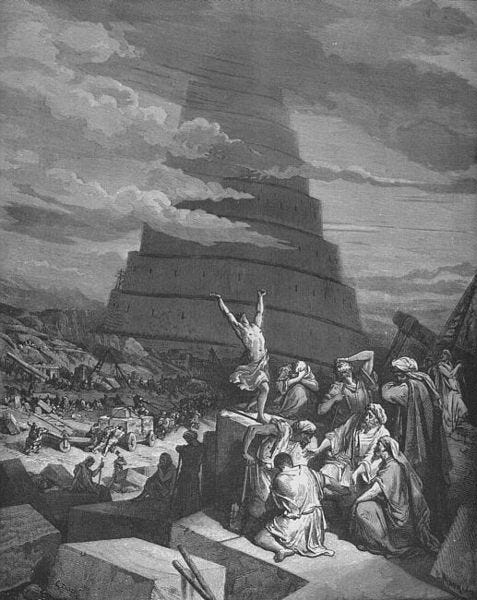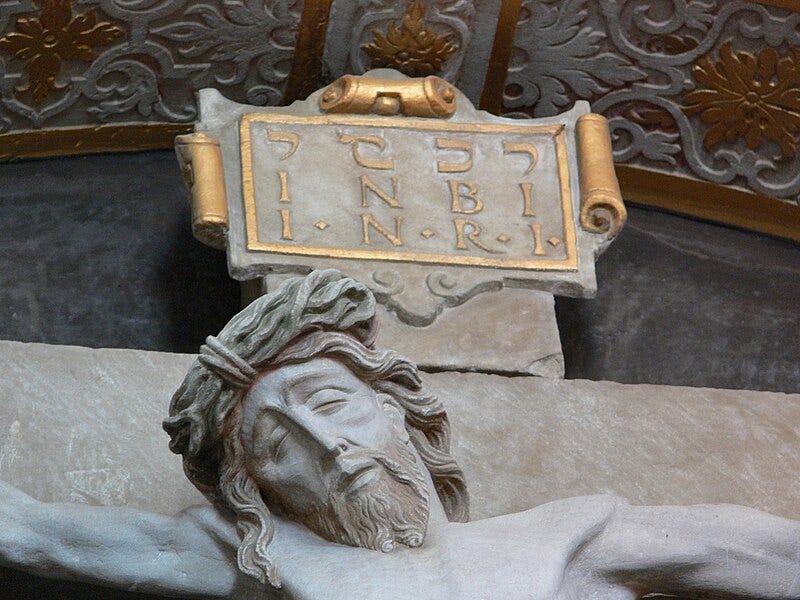Each Friday I post a short (re)flection on Scripture. I look at both Catholic and Protestant commentaries before writing my own, but the post itself is brief, to-the-point, and does not attempt to wade through all available views. I also try not to simply repeat what’s been said elsewhere. Since I mostly comment on the spiritual meaning of the text, my interpretation generally complements rather than competes with other readings, anyway. Welcome to Friday ’flections!
A sign above the Savior’s head proclaimed: “JESUS OF NAZARETH, KING OF THE JEWS” in Hebrew, Latin, and Greek. When asked to qualify the statement by adding that He merely claimed to be king of the Jews, prophetic inspiration and belated backbone combine in Pilate’s reply: “What I have written, I have written.”
Thousands of years earlier, when myth and history were still one flesh, man attempted to raise himself to Heaven by his own art. God responded by confusing man’s tongues, scattering humanity across the earth and redoubling the curse in the Garden that estranged our First Parents from one another.
In the Crucifixion, man is again raised by human art, and again confused tongues announce his doom. Yet now the condemnation is transfigured into exaltation. This man, who allows Himself to be lifted up not out of pride but humility, and seeks not to make a name for Himself but to receive one, gathers in the languages of the world over his bowed head and outstretched arms.
Hebrew, Latin, and Greek are chosen for obvious historical reasons, but they also play a role in announcing the sacred mystery.
“Christ, the Power of God and the Wisdom of God.”
Hebrew, the language of God’s people and the holy Temple, signifies the priestly identity of Christ. He is Christus, messiah, “the Anointed One,” the great high priest not after the genealogical order of Levi, but the eternal order of Melchizedek. His sacrifice will cover not only the Jews, but all humanity.
Latin, the language of conquest and strength, signifies the kingly role of Christ, who reigns over all things and is Himself the true Pax Dei. His Kingdom, the Church, is spread out across the world and stretches from the rising of the sun to its setting, that is, from this new beginning of history to its final end.
Greek, the language of wisdom and philosophy, signifies the prophetic office of Christ, contemplating the secret things of God and proclaiming them to the people. Jesus is the one “in whom are hidden all treasures of wisdom and knowledge,” treasures He freely distributes to all who trust in Him.
All languages converge on Him. Jesus Christ is the center of everything. In Him, Babel is undone and the way to Heaven opened—not by human art, but despite it. It has been said that God writes straight with crooked lines. True indeed, and more: God makes all the crooked lines of human speech lead back to their deep source, the Word Himself.
< Last Commentary | All Commentaries | Reformation Catholicism >






